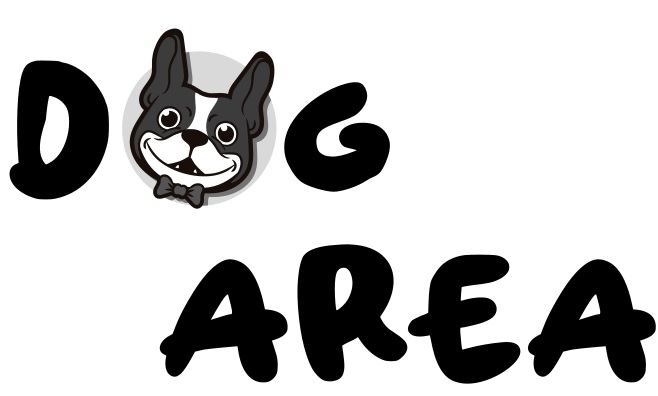Clearing the Haze: How to Get a Dog Unstoned at Home?
While professional veterinary care is crucial, our user-friendly supportive guidelines and tips are meant to assist dog owners in understanding preventive measures and supportive methods on how to get a dog unstoned at home.

Knowing how to address a case where your canine companion gets intoxicated or stoned becomes more than essential in a world filled with curious pooches and unexpected misfortunes.
By addressing the causes, being aware of the symptoms, and applying appropriate methods, a dog owner can play a key role in avoiding severe cases and leading their little pal to a safe recovery from all the unpleasant effects of intoxication.
Our article is meant to be used as practical guidance when dealing with such a delicate scenario without having to leave the comfort of your home.
Acknowledging Canine Intoxication
Generally speaking, our pooches can experience intoxication when accidental ingestion of various substances, such as toxic foods, drugs, or specific chemicals, has taken place.

Before anything, it`s crucial to recognize that our beloved pets are curious by nature, which often leads them to “unnecessary investigations” and ingesting substances that can be very dangerous.
From household chemical substances to common toxic foods, such as grapes or chocolate, a wide range of possible sources can lead to intoxication. Informing yourself about these potential hazards can empower you to prevent your little pal’s exposure proactively.
Moreover, dog owners must know the significance of seeking professional help when required. Although some mild intoxication cases can easily be managed in the comfort of your home if appropriate guidance is followed, more serious cases need veterinary intervention.
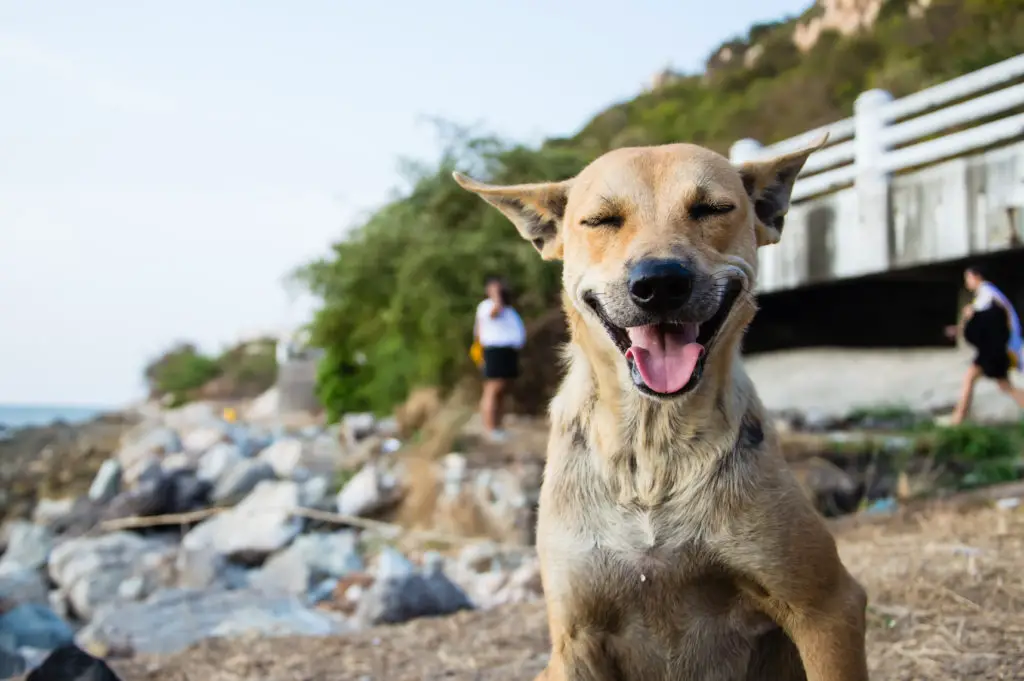
It`s vital to acknowledge when your dog’s health is in danger and contact a vet promptly, as only their expertise can ensure your four-legged friend receives the best possible care in these situations.
Assessing the Situation
Evaluating the situation where a canine is stoned involves quick thinking and sharp observation. When encountering a canine in an intoxicated state, it`s vital to try and distinguish any abnormalities in the dog’s behavior and physical condition.
So, what happens when a dog gets high? One of the things dog owners could do is to look for any signs of excessive drooling, altered responsiveness, unusual vocalizations, unsteady movements, or dilated pupils. These symptoms can help you weigh the actual severity of the situation and determine whether prompt action is required.

Your dog`s behavior and physical condition aren`t the only things to consider. Any potential intoxication sources should also be taken into account. All your surroundings should be checked for any chemical substances or items your fluffy friend may have ingested, like chemicals or foods and plants that may have been toxic.
Pet owners should collect all the necessary information regarding their dog’s recent exposure and activities. All of this can offer valuable answers for assessing the situation and knowing what to tell the vet in case further professional help is needed.
All these factors need to be assessed calmly and methodically so you can properly understand your canine`s condition and take suitable steps to ensure its well-being and safety are assured.

Creating a Comforting Environment
It`s paramount to create a comforting environment when dealing with a high canine, as it mitigates any anxiety and offers support for the dog`s recovery process.
Most dogs in a stoned state can often feel distressed or disoriented, so providing a calm, familiar space is crucial. Create a quiet area where your little fella` can retreat, ideally away from excessive activity or loud noises.
Consistent routines can play a vital role in offering comfort to a high dog. Stick to their usual routine schedule that should involve feeding, walking, and resting to offer some balance amidst the confusion.
Calming interactions, such as soothing words and kind petting, reassure your canine companion that everything is fine. Any loud noises or sudden movements that may exacerbate your dog`s discomfort should be avoided.
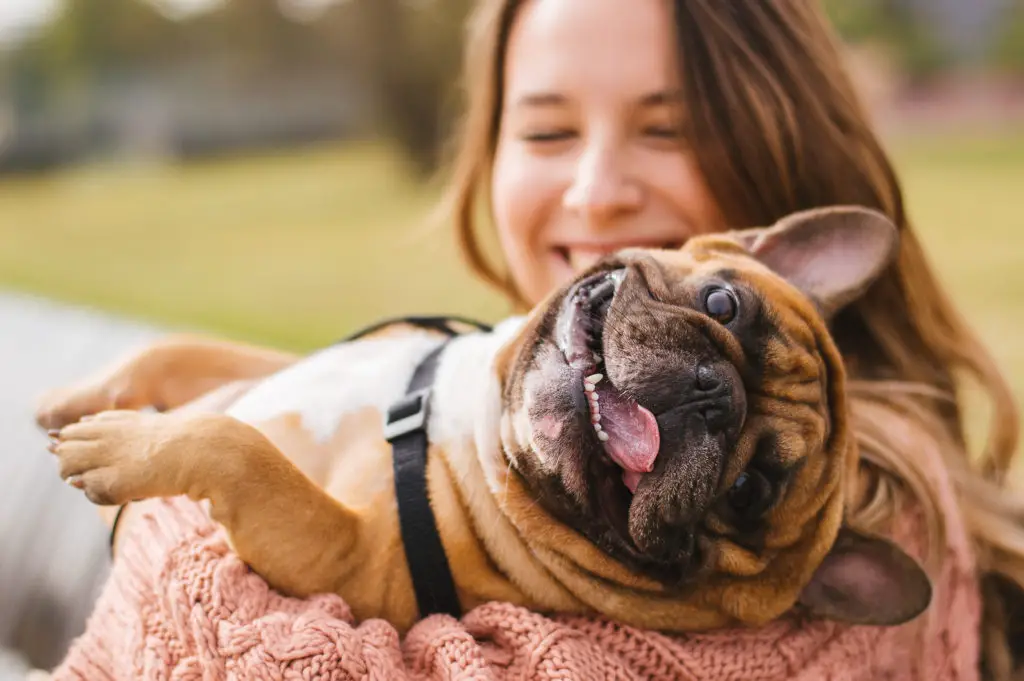
Additionally to physical comfort, mental stimulation can help recovery if specifically tailored to their stoned state. Engage in activities that don`t require too much energy, and offer your dog familiar toys to keep their minds occupied.
The presence of their favorite family member, familiar scents, and soft bedding can help your dog feel safe and secure during such challenging times.
Hydration & Nutrition
Hydration and nutrition are vital components when tending to a stoned canine. As there`s increased stress on the dog`s body, intoxication can result in dehydration, so it`s very important to ensure a supply of fresh water is always available for our furry friends.
Your pet needs to be encouraged to drink water regularly, even without an appetite, as adequate hydration aids flush toxins from their little body and help with its recovery process.

When talking about feeding, the approach needs to be handled gently. Intoxication may affect both appetite and digestion. Provide small amounts of their usual food and notice how your dog reacts. – Click this link!
Don`t introduce unfamiliar foods now, as the condition might be exacerbating. If your pooch exhibits reluctance when it eats or shows apparent severe symptoms of vomiting, get in touch with a vet to find out the best possible approach regarding your dog`s feeding.
Quick Fixes
There are immediate methods to eliminate the effects of intoxication if your dog is high.
- Inducing vomiting under veterinary guidance is one method, especially if ingestion has happened recently. However, this shouldn`t be done without professional supervision, as further complications may occur.
Inducing vomiting in canines can put the life of the actual dog in danger if not done properly. There`s always a risk that the canine might inhale vomit, resulting in pneumonia and respiratory problems, specifically if the pooch is unsteady or disoriented due to the intoxication.
Moreover, not all chemical substances ingested are safe to be brought back up. Some toxins, such as corrosive chemicals, can lead to more harm when they come into contact with the throat and esophagus on their way out.

Last but not least, timing is vital when inducing vomiting. If it`s performed too late after ingestion, it might not be efficient in removing the actual toxin from the canine`s system.
- Activated charcoal is another quick fix, which, once administered, could aid in absorbing toxins from the dog’s system. Some pet stores have this product available, but should only be used under veterinary supervision.
Using it without professional guidance can lead to an improper dosage, which might not efficiently bind to and neutralize the ingested toxins. Too much or too little of it can prove to be inefficient.
Also, it might interfere with the absorption of specific meds, possibly making treatment less efficient if the canine follows a treatment for other health problems.
Ultimately, administering activated charcoal to your furry friend can result in digestive discomfort, including vomiting, nausea, and diarrhea.
It`s vital to understand that not all these quick fixes are suitable for every situation, and the proper action usually hinges on the intoxication case, the type of substance ingested, or how severe the signs are.
Seeking a veterinarian immediately is vital when dealing with a stoned canine. This is the best course of action to ensure your dog`s safety and recovery.

Gentle Exercises & Activities
Encouraging your stoned dog to take part in exercise and activities can help in their reorientation and recovery process. Remember that any intense physical activity isn`t advisable at this time; instead, you should go for gentle, short exercises such as relaxed walks in the part that can aid in stimulating blood circulation and reduce restlessness.
These physical activities should be performed in a calm environment free of potential stressors to ensure your canine can have a positive experience.
Mental stimulation is just as important. Engaging in low-energy games can encourage focus and cognitive engagement. Introduce high-and-seek games and treat-dispensing puzzles using their favorite toys.
These activities offer mental engagement without overwhelming the altered state of your canine. Keep a watchful eye on your dog`s responses to make sure they are comfortable during these activities.
If your fluffy friend is showing any symptoms of discomfort or distress, it`s advisable to stop and allow them to rest for a while.
Natural Home Remedies 101
Looking into some natural home remedies can offer a beneficial approach when taking care of a stoned canine. One simple, straightforward remedy involves providing small amounts of unsweetened yogurt to your little fella`, which might help in soothing their little stomach and improving digestion.
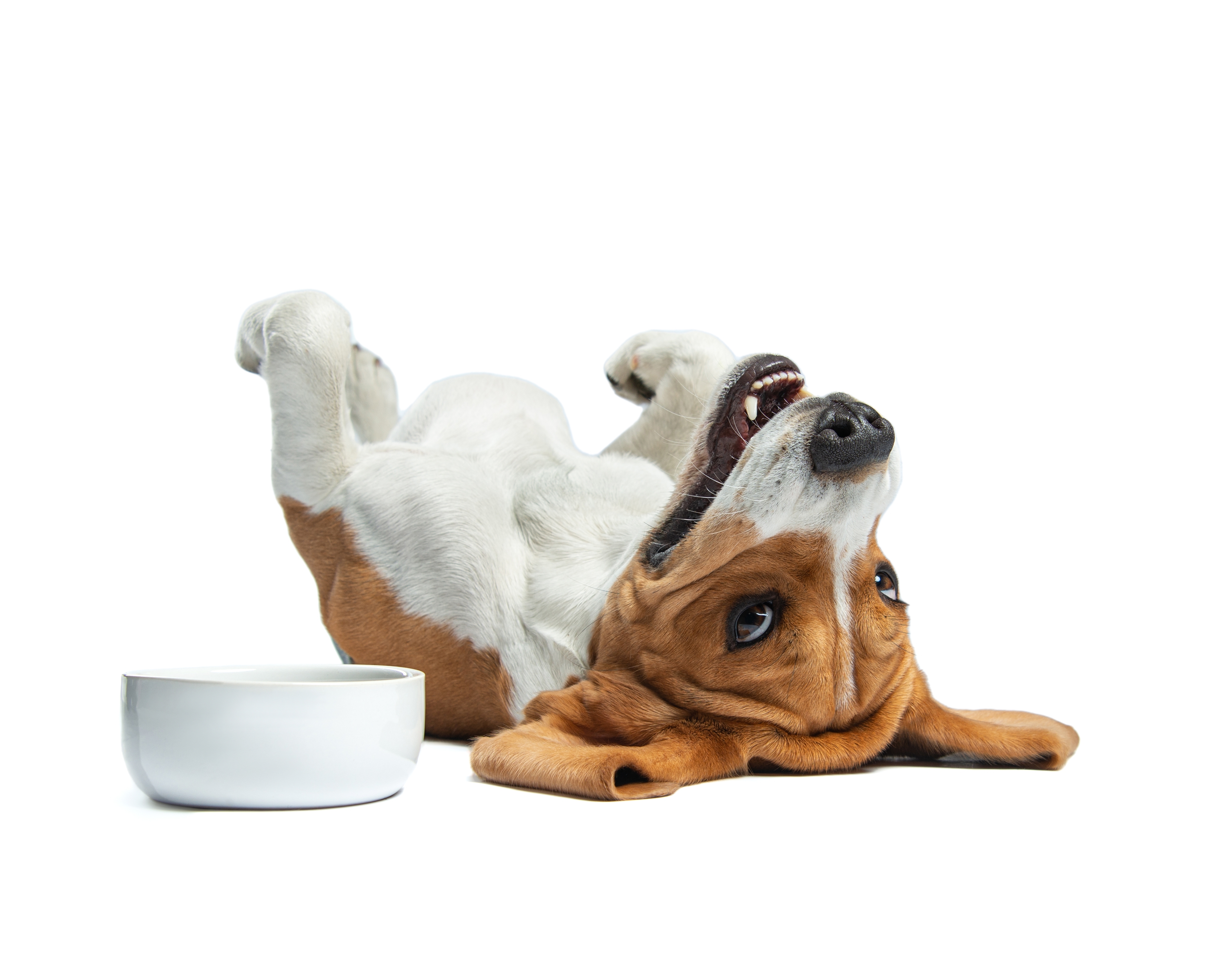
In addition, the consumption of mild teas, such as peppermint or chamomile served slightly warm in moderate amounts, may ease discomfort and offer a sense of calm for your pooch.
Another option will be to craft a bland diet with easily digestible foods, like cooked chicken and white rice. Again, this mild diet should be administered in small amounts to aid ease your little pal`s stomach while ensuring they get all the essential nutrients their body needs.
It`s vital to note that these home remedies should be used cautiously, possibly under veterinary guidance, as every dog is different, and their response may vary.
If your pet`s condition worsens or doesn`t improve, looking for veterinary advice is advisable to ensure their well-being and overall health.
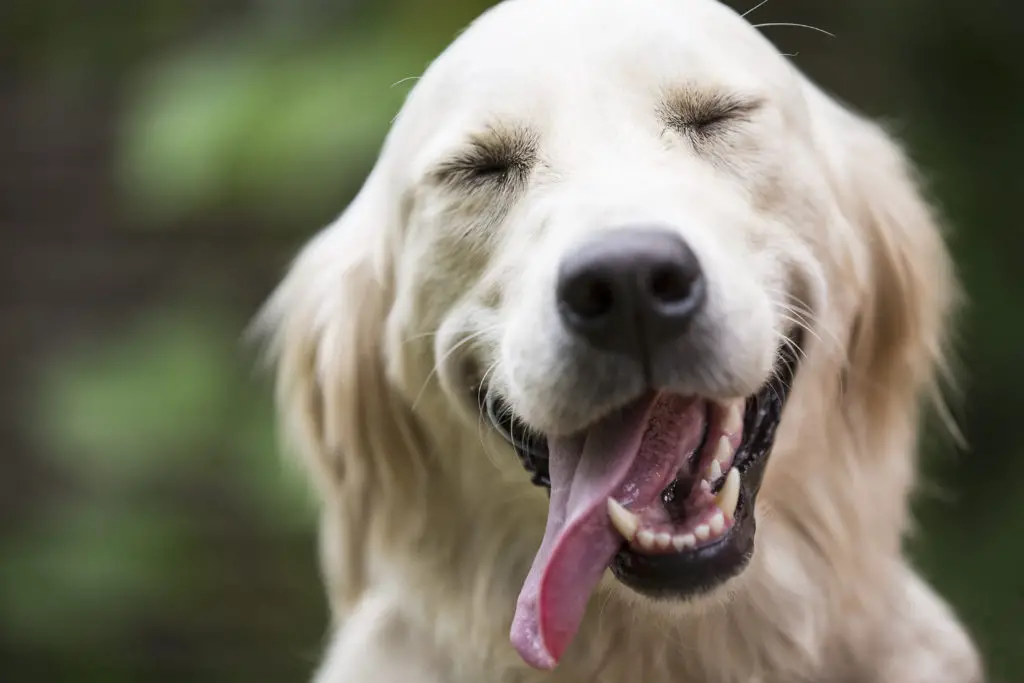
When to Look for Veterinary Guidance?
While the desire to help your beloved canine companion when intoxicated is completely understandable, it`s crucial to stay calm and look for your nearest vet when needing help recovering a high canine.
Let`s assume your furry friend has ingested marijuana or other similar toxic substance, and you are considering handling it at home to save on vet bills. Although it`s natural to be worried about the costs related to professional care, it`s essential to weigh these costs against the possible health consequences of DIY intervention.
If your dog exhibits serious health issues, such as severe disorientation, difficulty breathing, or prolonged vomiting, this should be a clear signal to seek professional care.
In addition, if you aren`t sure if the intoxication resulted from a possibly toxic substance, contact a vet as soon as possible.
Moreover, if their condition doesn`t show it`s improving or your dog’s vitals get worse, it`s recommended to ask for vet guidance to avoid serious consequences.
They have the expertise to diagnose the problem with urine test kits and administer proper treatment. At the end, you`ll get a full vet report and professional healing step-by-step guidelines that you can use to help you with your canine`s recovery.
Remember that your dog’s well-being and overall safety should be the top priority, and a vet visit to get professional intervention at the right time can significantly impact their recovery process.
To Sum Up
As we conclude our “How to sober up a dog” guide, we want to outline that knowledge and compassion are invaluable companions in assisting a high dog. Intoxication can be very distressing not only for you but for your fluffy friend as well. – Check for more!
However, one can confidently navigate such challenging times with knowledge and the right insights. Don`t forget – prevention and careful supervision are always the best approaches to avoiding severe cases. Still, if things don`t improve, swift evaluation, crafting a soothing environment, and looking for expert advice can make a difference.
The bond between you and your pet companion is a remarkable connection, and your faithful support during such challenging times showcases the exceptional care that defines the human-canine relationship.
